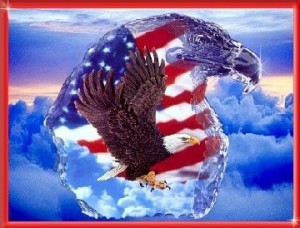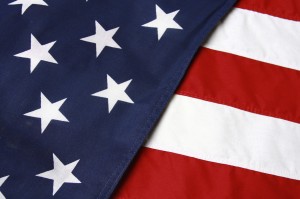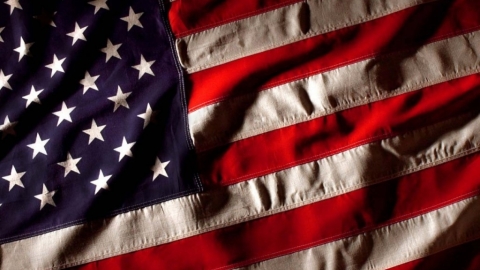The 4th of July, previously the most celebrated day in the civic life of America, was the hottest day of the year in this part of California—111/44. In more ways than one the Great Central Valley felt like Death Valley, where temperatures neared the all time recorded high on earth of 134/57.
 America is a feeble echo of the nation it once was. Flags fluttered in the scorching wind, neglected dogs barked in backyards as people stayed indoors, and a palpable deadness pervaded the land.
America is a feeble echo of the nation it once was. Flags fluttered in the scorching wind, neglected dogs barked in backyards as people stayed indoors, and a palpable deadness pervaded the land.
As one prominent liberal commentator put it, “by and large, we sit in cubicles on weekdays and visit shopping malls on our days off.” But with unbelievable obtuseness, the same New York Times columnist went on to say: “Yet I would maintain that we are still the same country that declared independence all those years ago.” Such willful illusion and falsehood serve neither the nation nor humanity.
Conservative pundits lamented the passing of patriotism on America’s birthday, some calling its observance “pathetic.” But history has moved on, and we haven’t caught up. Unprecedented changes have supplanted everything but identification with countries, sects and ethnicities. Can real transformation occur?
All over the world in the de facto global society, people’s identification with separate groups wanes at the core, but waxes in reaction. Nationalism flares with false hope in open conflict between religionists and secularists in Egypt (with secularists making an unholy alliance with the military again), while sinking into pits of sectarian slaughter and despair in Syria.
Ancient animosities, fanned by nationalistic sentiments and propaganda, have put China and Japan on a collision course over a few bits of uninhabited rock between them. Experts liken the situation to a pre-World War I potential tinderbox for God’s sake, threatening another world war.
The whole notion of ‘the internal affairs of nations’ having primacy has become not just ethically, spiritually and politically defunct, but disgraceful. Yet a monumental failure of insight and imagination propels the pillars of the status quo to continue with the old construct.
Patriotism is the sentimental exuberance of nationalism, the identification with country put above a feeling for  humanity. It has become a vice still equated with a virtue—loyalty.
humanity. It has become a vice still equated with a virtue—loyalty.
The true fault line in America and all over the world is between people who still identify primarily with a nation or some group, and people who see and feel themselves to be part of humanity. But it’s a fault line without a rupture, because there’s nothing to fight when no nation or people are one’s enemy.
Everything has changed in the world except the shared human psyche–it’s the last great frontier of unexplored territory. How much longer will this interregnum between the end of the nation-state and the beginning of world civilization last?
Sovereignty no longer belongs to nation-states, anymore than it did to city-states during the Renaissance. Yet the human mind has not caught up with the facts on the ground, and we are all at sea.
This hyper-connected world has made patriotism pathetic, with little more meaning and significance than colored cloths waving in the wind. Despite the ‘heroism and sacrifice of our troops,’ all the killing and dying since 9.11 have not made us safer and more unified as a people, or as a world. Quite the contrary.
In his long overdue speech outlining how his administration will respond to global warming, President Obama said, “I refuse to condemn your generation and future generations to a planet that is beyond saving.”
That’s probably the most sobering statement he’s made in his entire presidency. But if Barack is true to form, he’ll try to have things both ways, and approve the Keystone Pipeline.
 In a statement that both cheers pipeline opponents and sets them up, Obama said, “our national interest will be served only if this project does not significantly exacerbate the problem of carbon pollution.”
In a statement that both cheers pipeline opponents and sets them up, Obama said, “our national interest will be served only if this project does not significantly exacerbate the problem of carbon pollution.”
Let me be clear, the national interests of countries do not serve and cannot serve the common interests of humanity as long as they are put first.
In the past, through principle or providence, the advancement of nations served the advancement of humanity. For example, when slavery was abolished in Britain and then in the United States, or when the superpower race to the moon gave us a new perspective on the earth.
Now, both liberal and conservative versions of patriotism sound like thuds from the same broken drum.
The identification with particular groups as a primary source of identity must end for a global civilization to emerge. Likewise, effective and limited global governance cannot transpire until a psychological threshold is crossed, and more people see themselves first as citizens of the world than citizens of particular countries.
The end of nationalism and patriotism will not come about gradually however, but with a breakthrough. People will retain a feeling for the land, and national history will have its place, but the shift from identification with particular groups to the emotional realization of humanity as a whole requires a radical psychological change in a sufficient minority of individuals.
The idea that our circle of identification can grow from clan to tribe to nation to humankind is a conceit, a non-reality. Psychologically, humankind remains a tribal animal, fighting over territory and competing for resources. In a global society of 7 billion people and growing, that must radically change.
Therefore the single most important change we can make as individuals anywhere in the world is to end nationalistic sentiments within ourselves, and feel the fragmented wholeness of humanity.
Identification with ‘my group’ is one of the most powerful habits in the human psyche. There can be a sea change, which not only rekindles the moribund American soul, but also points the only way ahead for humanity.
Martin LeFevre

